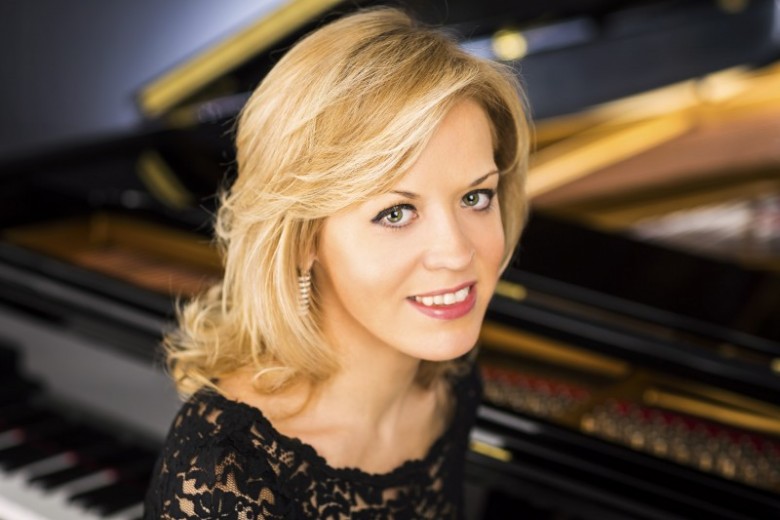Having only recently been on a tour of China, the RSNO are now off to give six concerts on the West coast of the USA, and tonight’s programme is the one they will be performing there. This helps explain the first work, a new composition commissioned by the RSNO: A Matter of Honor by composer Paul Chihara. He is a Japanese-American, who, like many, was interred during the war as it was assumed he might be sympathetic to the Japanese. Lest we should be too shocked by such events in the USA, it’s worth recalling that the same happened to many Italian and Germans in Britain. Indeed, the great Scots-Italian sculptor Eduardo Paolozzi was one, and many of his relatives were lost at sea when their ship deporting them to Canada was torpedoed.
Chihara was only four when he was locked up in a camp, but vividly recalls the music there: a strange mixture of American popular music, sad Japanese pop songs and traditional Japanese music. The music reflects these influences and is enhanced by narration of well-known quotations from the period that illustrate the inherent racism of the time. This is very well delivered by the narrator, Clyde Kusatsu, and he and the composer take a bow at the end of the work. It is very melodic and should make a big impact on the US tour.
This new work is followed by a really well-known one: Rachminanov’s Rhapsody on a Theme of Paganini. Readers will remember that Rachmaninov’s second Piano Concerto was used in the classic film Brief Encounter, and it is very similar to the Rhapsody, the latter comprising twenty-four variations on Paganini’s simple tune. It is well played by Russian-American pianist Olga Kern, whose family has direct links to Rachmaninov.
The orchestra, under the expert baton of music director Thomas Søndergård, provides a colourful background to the piano, including some rather strange noises from the wooden edges of the string bows. She gets a very good response from the audience and rewards us with an encore.
The final work, after the interval, is Prokofiev’s fifth Symphony, written in 1945. Prokofiev, like many Russian composers, had a difficult time in Stalinist Russia, where composers had to be careful not to be too modern and instead display appropriate socialist realist principles in their work. He had great success with his film music for the great Eisenstein movies such as Ivan the Terrible, but less success for his Cantata for the October Revolution, which was deemed not sufficiently socialist realist. So it’s not surprising that his fifth Symphony is optimistic and lyrical. It was, he said, “an expression of the greatness of the human spirit”. Fortunately for Prokofiev, it was well received and lifted the spirits of Russia after a long and bloody war.
It opens with a gentle lyrical theme that develops into a grand march. The central section has an affinity with his music for the ballet Cinderella composed around the same time. The symphony ends in a rather unusual manner, with only the soloists of each section playing. The concert is warmly received by a big Usher Hall audience and we send the orchestra off to the USA with warm applause.
